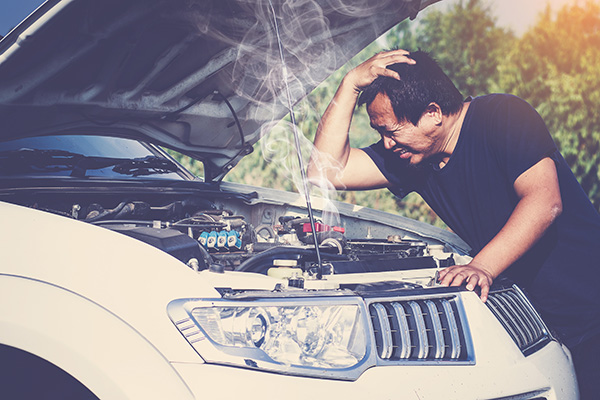
Ever found yourself stranded on the side of the road with steam billowing from under your car's hood? Overheating is a common car issue that can cause serious damage if not addressed properly. The secret to avoiding this headache lies in maintaining an effective cooling system. These are the essential steps to ensure your car's cooling system stays in top-notch condition.
Your Car's Cooling System
Before we get to the maintenance, it's important to understand how your car's cooling system works. The system is designed to manage the heat produced by the engine, keeping it within an optimal temperature range. It comprises several key components: the radiator, water pump, thermostat, coolant, and hoses. The coolant circulates through the engine, absorbing heat and then traveling to the radiator, where it is cooled by airflow before repeating the process.
Regular Coolant Checks and Changes
One of the simplest yet most critical maintenance tasks is checking and changing the coolant. Over time, coolant can become contaminated or lose its effectiveness. It's advisable to check the coolant level regularly, ensuring it's between the minimum and maximum marks on the reservoir. If it's low, top it up with a mixture of antifreeze and distilled water.
But it's not just about topping up; coolant should be completely flushed and replaced according to your vehicle's maintenance schedule—usually every 30,000 to 50,000 miles. Fresh coolant helps prevent rust, corrosion, and the build-up of scale deposits within the cooling system.
Inspecting the Radiator and Cap
Your car's radiator is central to the cooling process. Regularly inspect it for any signs of leaks, corrosion, or damage. Ensure that the radiator cap is also in good condition, as a faulty cap can cause pressure loss, leading to overheating. The cap maintains the correct pressure within the system, allowing coolant to circulate properly.
If you notice any damage or leaks, it's crucial to have them repaired immediately. Even a small leak can lead to significant problems if not addressed promptly.
Checking the Thermostat
The thermostat regulates the flow of coolant based on the engine's temperature. If it's not functioning correctly, it can either cause the engine to overheat or not reach the proper operating temperature.
You can perform a simple test to check if the thermostat is working: start the engine and let it run. Once it reaches operating temperature, feel the upper radiator hose. If it remains cool, the thermostat might be stuck closed. If it warms up quickly, it might be stuck open. In either case, a faulty thermostat should be replaced to ensure the cooling system operates efficiently.
Hoses and Belts Inspection
Hoses and belts are vital for maintaining the cooling system's integrity. Hoses carry coolant between the engine, radiator, and heater core, while belts drive the water pump that circulates the coolant. Regularly inspect these components for signs of wear, cracks, or leaks.
Squeeze the hoses to check for any soft spots or bulges, and replace them if necessary. Belts should also be inspected for fraying or cracks. Replacing worn-out hoses and belts is a relatively inexpensive repair that can prevent more severe issues down the road.
Ensuring the Water Pump is Functioning
The water pump is the heart of the cooling system, pushing coolant through the engine and radiator. If the pump fails, the coolant won't circulate, leading to rapid overheating. Listen for any unusual noises coming from the water pump area, as squealing or grinding sounds can indicate a problem.
You should also check for any coolant leaks around the pump. If you suspect an issue with the water pump, it's best to have it inspected and replaced by a professional. A malfunctioning water pump can quickly escalate into a significant and costly repair if ignored.
Radiator Fan and Cooling Fan Maintenance
The radiator fan plays a critical role in drawing air through the radiator when the car is stationary or moving slowly. If the fan isn't working correctly, it can cause the engine to overheat, particularly in heavy traffic or hot weather.
Check that the fan spins freely and without obstruction. Ensure that the electrical connections are secure and that the fan engages when the engine reaches a certain temperature. If you notice any issues, it might be time to replace the fan or its motor.
Don't wait for a breakdown! Visit Wes Jackson Automotive today for a comprehensive check-up of your car's cooling system.